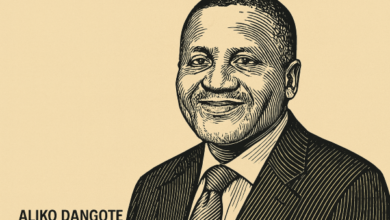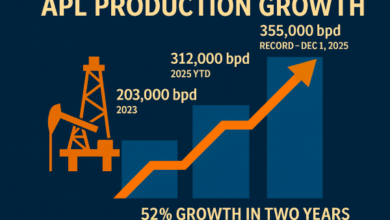BUSINESS
Reinforce corporate governance to boost investor-confidence, SEC charges banks
"...the oversubscription of most recapitalisation offers in 2024 reflects strong investor confidence"
 The Securities and Exchange Commission (SEC) has called on banks to reinforce their corporate governance principles and risk management frameworks to boost investor confidence during the ongoing recapitalisation exercise.
The Securities and Exchange Commission (SEC) has called on banks to reinforce their corporate governance principles and risk management frameworks to boost investor confidence during the ongoing recapitalisation exercise.Dr Emomotimi Agama, Director-General, SEC, said this at the yearly workshop of the Capital Market Correspondents Association of Nigeria (CAMCAN) held in Lagos.
The theme of the workshop is: “Recapitalisation: Bridging the Gap between Investors and Issuers in the Nigerian Capital Market”.
Agama, represented by the Divisional Head of Legal and Enforcement at the SEC, Mr John Achile, stated that the 2024–2026 banking sector recapitalisation framework offers clear guidance for issuers while prioritising the protection of investors’ interests.
He restated the commission’s commitment towards ensuring transparency and efficiency in the recapitalisation process.
The director-general stated that the key to bridging the gap between issuers and investors remained the harnessing of innovation for inclusive growth.
In view of this, Agama said, “SEC, through the aid of digital platform, is exploring the integration of blockchain technology for secure and transparent transaction processing to redefine trust in the market.”
He added that the oversubscription of most recapitalisation offers in 2024 reflects strong investor confidence.
To sustain this momentum, the director-general said that SEC had intensified efforts to enhance disclosure standards and corporate governance practices.
According to him, expanding financial literacy campaigns and collaborating with fintech companies to provide low-entry investment options will democratise access to the capital market.
He assured stakeholders of the commission’s steadfastness in achieving its mission of creating an enabling environment for seamless and transparent capital formation.
“Our efforts are anchored on providing issuers with clear guidelines and maintaining open lines of communication with all market stakeholders, reducing bureaucratic bottlenecks through digitalisation.
“We also ensure timely review and approval of applications, and enhancing regulatory oversight to protect investors while promoting market integrity,” he added.
Agama listed constraints to the exercise to include: addressing market volatility, systemic risks, limited retail participation as well as combating skepticism among investors who demand greater transparency and accountability.
He said: “We are equally presented with opportunities which include leveraging technology to deepen financial inclusion and enhance market liquidity.
“It also involves developing innovative financial products, such as green bonds and sukuk, to attract diverse investor segments.
“The success of recapitalisation efforts depends on collaboration among regulators, issuers, and investors.”
Speaking on market infrastructure at the panel session, Achile said SEC provides oversight to every operations in the market, ranging from technology innovations to market.
He stated that the commission is committed to transparency and being mindful of the benefits and risks associated with technology adoption.
Achile noted that SEC does due diligence to all the innovative ideas that comes into the market to ensure adequate compliance with the requirements.
On the rising unclaimed dividend figure, Achile blamed the inability of investors to comply with regulatory requirements and information gap.
He noted that SEC had done everything within its powers to ensure that investors receive their dividend at the appropriate time.
He, however, assured that the commission would continue to strengthen its dual role of market regulation and investor protection to boost confidence in the market.
In her welcome address, the Chairman of CAMCAN, Mrs Chinyere Joel-Nwokeoma, said banks’ recapitalisation is not just a regulatory requirement, but an opportunity to rebuild trust, strengthen the capital market, and drive sustainable growth.
Joel-Nwokeoma stated that the recent recapitalisation in the banking sector had brought to the fore the need for a more robust and inclusive capital market.
She added that as banks seek to strengthen their balance sheets and improve their capital adequacy ratios, it is imperative to create an environment that fosters trust, transparency, and cooperation between investors and issuers.
The chairman called for collaboration to bridge the gap between investors and issuers to create a more inclusive and vibrant Nigerian capital market.
She said: “we must work together to strengthen corporate governance and risk management practices in banks, enhance disclosure and transparency requirements for issuers.”







